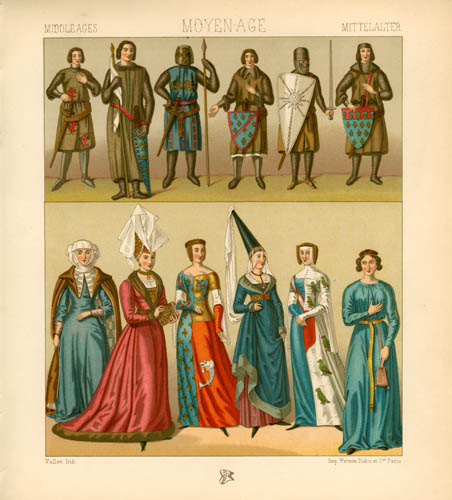Describe the political system of Feudalism.
Land was owned by monarchs (kings) and nobles, but worked by peasants and serfs who had few rights.

At the top of the feudal pyramid, this ruler granted land to nobles in exchange for loyalty and military support.
King

This system of government weakened during the plague as many peasants died or left their land, disrupting the social order.
Feudalism
This institution was the most powerful force in medieval Europe, influencing politics, education, and daily life.
Catholic Church
The Crusades were a series of religious wars fought mainly between what two religions?
Christianity and Islam
Describe the economic system of the manor.
For BONUS POINTS: What were some advantages of the manorial system?
The manor was the main economic unit, providing everything people needed to survive.
Peasants grew food and maintained the estate, while the lords offered protection.
These land-owning vassals pledged loyalty to the king and often managed large estates, overseeing knights and peasants.
Nobles

The Bubonic Plague was primarily spread by fleas carried by these animals, which were common in medieval towns.
Rats
In medieval Europe, Christians were expected to give one-tenth of their income or produce to the Church in this form of religious tax.
Tithe
The main goal of the Crusades was for European Christians to reclaim this sacred region from Muslim control.
Holy Lands (would also accept Jerusalem)
Also known as the "Emperor of the Romans" by Pope Leo III, THIS LEADER brought Roman, Christian, and Germanic traditions together and helped unite the Germanic tribes of Western Europe.
Charlemagne (aka Charles the Great)
Trained warriors who served their lords in battle and followed a code of chivalry in medieval Europe.
Knights
Because of the plague, many towns and villages were abandoned, leading to a decline in this aspect of medieval life.
The population (would also accept urban life or labor force)
Why did lower social classes in medieval Europe (e.g. peasants and serfs) often embrace Christianity?
Because it offered hope, community, and the promise of this reward in the afterlife, regardless of wealth or status
The Crusades increased trade between Europe and THIS REGION, introducing new goods like spices, silk, and ideas.
The Middle East
After Charlemagne’s death, his empire was divided, and local _____________ gained more power.
Hint: This was a group that became powerful in the feudal system
Lords
These free laborers worked the land in exchange for protection, but unlike serfs, they could move and seek new opportunities.
Peasants
The plague caused many people to question this powerful institution, which struggled to explain or stop the disease.
The Church
To encourage participation in the Crusades, the Church offered this spiritual reward, which promised forgiveness of sins.
Indulgences
To fund their journeys Crusaders often borrowed money, leading to the rise of this economic system involving loans and credit.
Banking systems (would also accept financial systems)
Under Charlemagne’s rule Latin remained the language of the Church and government, but then regional dialects evolved in his empire’s kingdoms. What are these modern languages (like French, Spanish, and Italian) called?
Romance Languages
Bound to the land and unable to leave without permission, these workers provided agricultural labor in return for shelter and protection.
Serfs
With fewer workers available, surviving peasants demanded better wages and living conditions, leading to this kind of social change.
Social mobility (would also accept labor reform)
This Church punishment cut individuals off from receiving the sacraments and participating in Christian community life, often used to pressure nobles or kings.
Excommunication
These Italian city-states grew wealthy and powerful by controlling trade routes and supporting Crusader expeditions.
Venice and Genoa